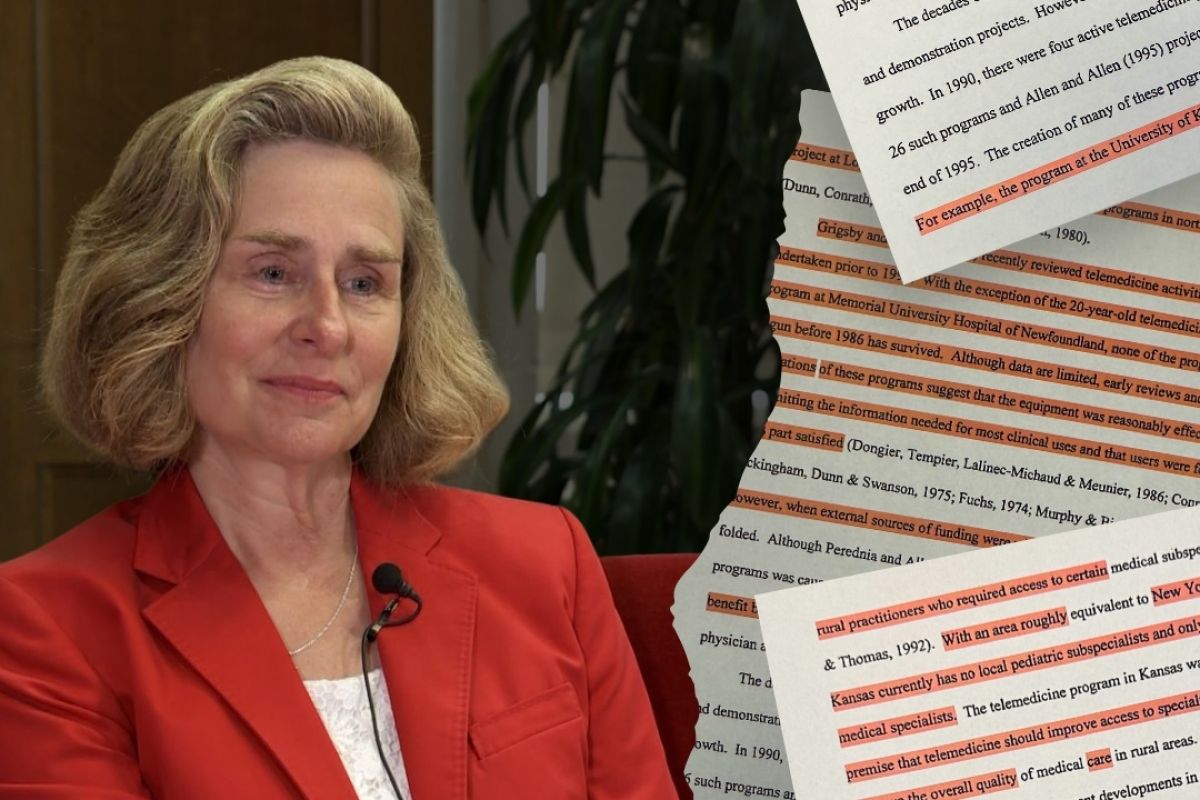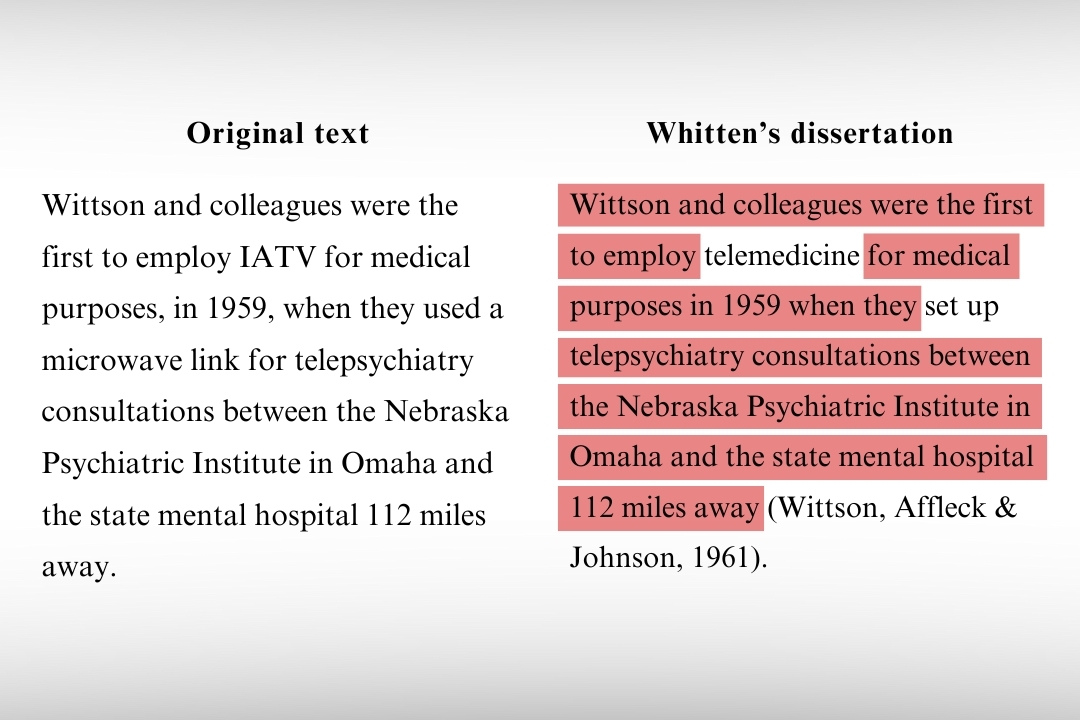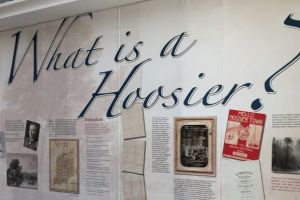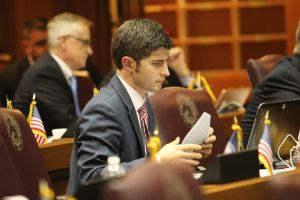
An anonymous tip accused Indiana University President Pamela Whitten of plagiarism. (Photo illustration by Katy Szpak, text from the Chronicle of Higher Education, photo by Devan Ridgway)
Indiana University President Pamela Whitten is facing accusations of plagiarism in her doctoral dissertation.
The Chronicle of Higher Education verified an anonymous tip accusing Whitten of plagiarism. Whitten published the dissertation on telecommunications in the 1990s with the University of Kansas. The Chronicle also reported Whitten copied two sentences from another source in a journal paper in 2006.
Jonathan Bailey, a plagiarism and copyright expert, reviewed Whitten’s work. In his opinion, Whitten did commit plagiarism, though it does not seem to be malicious, fraudulent or an “unethical shortcut.”
“Would I like to see a correction in the dissertation? Yes,” Bailey said. “But, do I think this should be the end of Whitten's academic career? Do I think she should lose her PhD, or have these other drastic actions taken? No.”
IU said the claims held “no merit” and were investigated by an independent law firm.
“These allegations are part of a continued effort to oppose the transformational leadership the IU Board of Trustees have charged the President and her team to pursue," the university said.
IU did not name the law firm, and its report wasn’t published. WFIU/WTIU has placed a public records request to learn more about the law firm’s investigation into the accusations.
KU spokespeople and the IU Board of Trustees didn’t respond to requests for comment.
Read more: Whitten touts IU’s strengths in annual address; critics say she missed some issues
Bailey said Whitten did cite all of her sources, but she made two “admittedly significant” mistakes, which he said are plagiarism.
“The first was that she used improper paraphrasing techniques, which was, she brought text in from the outside and attempted to rewrite it to make it original,” Bailey said. “The other issue is what's known as secondary source citation. She's citing the original sources, but clearly is using a secondary source as her actual jumping off point for her writing.”

Christian Moriarty, treasurer and board member of the International Center for Academic Integrity, cannot and will not comment on individual cases such as Whitten’s. He said improper paraphrasing and secondary source citation could be academically dishonest, but the context and intention are important.
Detecting plagiarism is complicated, Moriarty said, and there are gray areas. Academic research will inevitably have information based on writing that came before it, he said. Different people have different ideas of what constitutes plagiarism.
“Being able to determine intentionality and maliciousness is subjective and is best done by people that are in the field, in academia, and that have explored those concepts and those ideas previously,” Moriarty said.
When Whitten published the dissertation in 1996, Bailey said academia was fairly new to using the internet and adopting “copy and paste” plagiarism education. Today, Bailey said anonymous plagiarism accusations have been “weaponized” against university presidents.
Former Harvard University President Claudine Gay resigned, in part, over plagiarism accusations, NPR reported last year. Gay also came under fire due to her testimony surrounding antisemitism on campus and Harvard’s reaction to the war in Gaza.
The plagiarism accusations came to light as Whitten continues to face criticism and calls to resign. Major concerns with her administration include censorship, a lack of shared governance and her handling of protests over the war in Gaza.
Read more: Pro-Palestine protesters arrested at IU
It’s hard to have a nuanced dialogue surrounding plagiarism in the middle of these issues, Bailey said.
“They're trying to discredit President Whitten,” Bailey said. “That doesn't always mean the allegations are false.”
Though he doesn’t have data to back it up, Moriarty said at higher levels of education, “certain people are maybe targeted more than others as a means of embarrassing or to try to score political points.”
“It's just complicated,” Moriarty said. “Sometimes we're looking for something to try to make a point, and whether that's a genuine issue or not, I think, is in the eye of the beholder.”
Aubrey is our higher education reporter and a Report For America corps member. Contact her at aubmwrig@iu.edu or follow her on X @aubreymwright.











